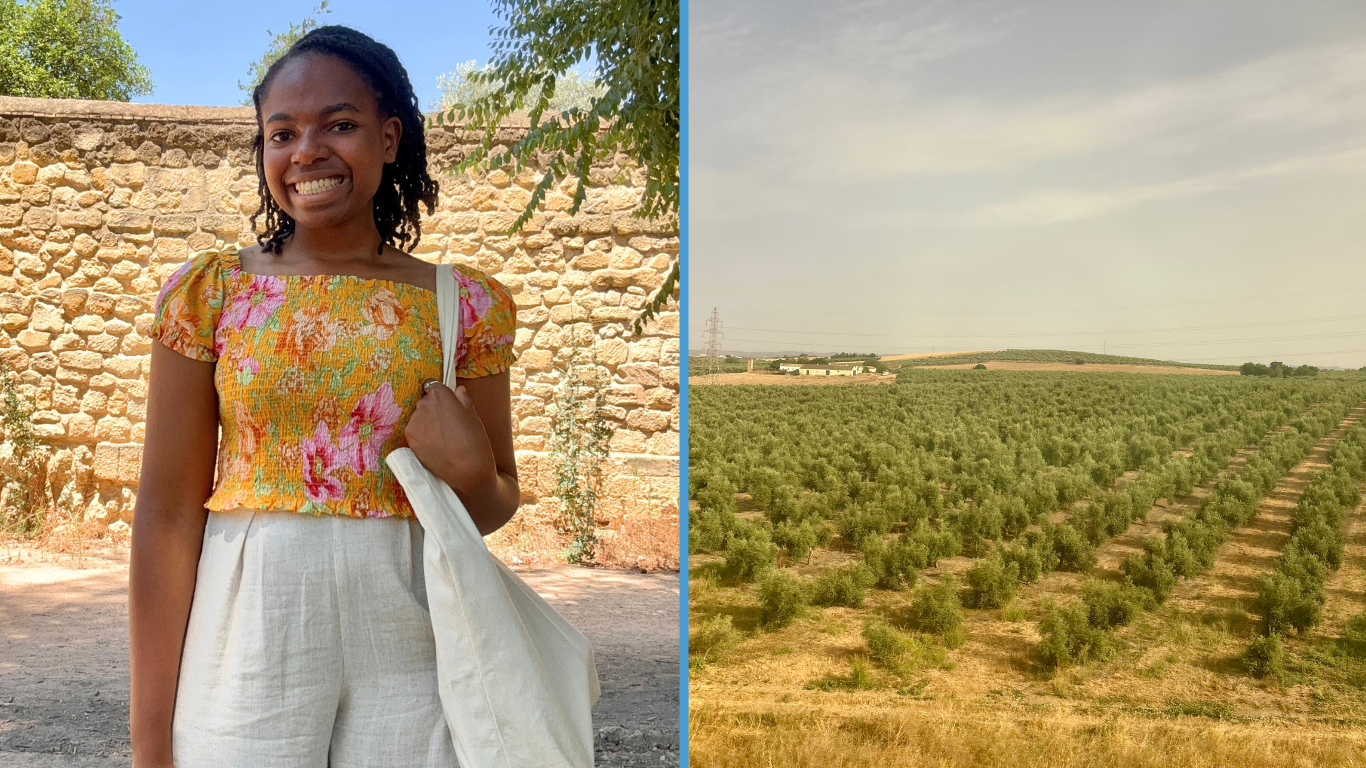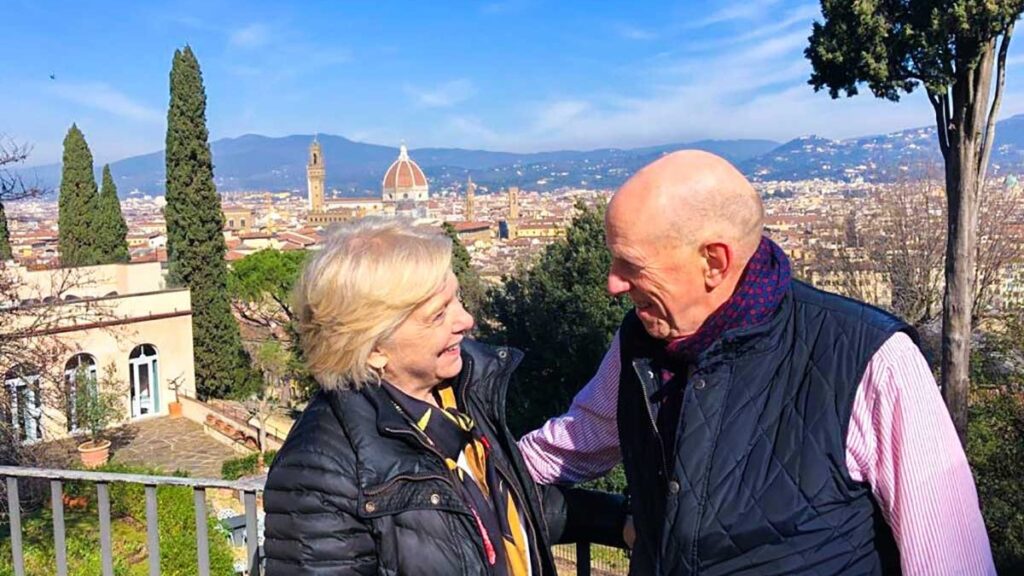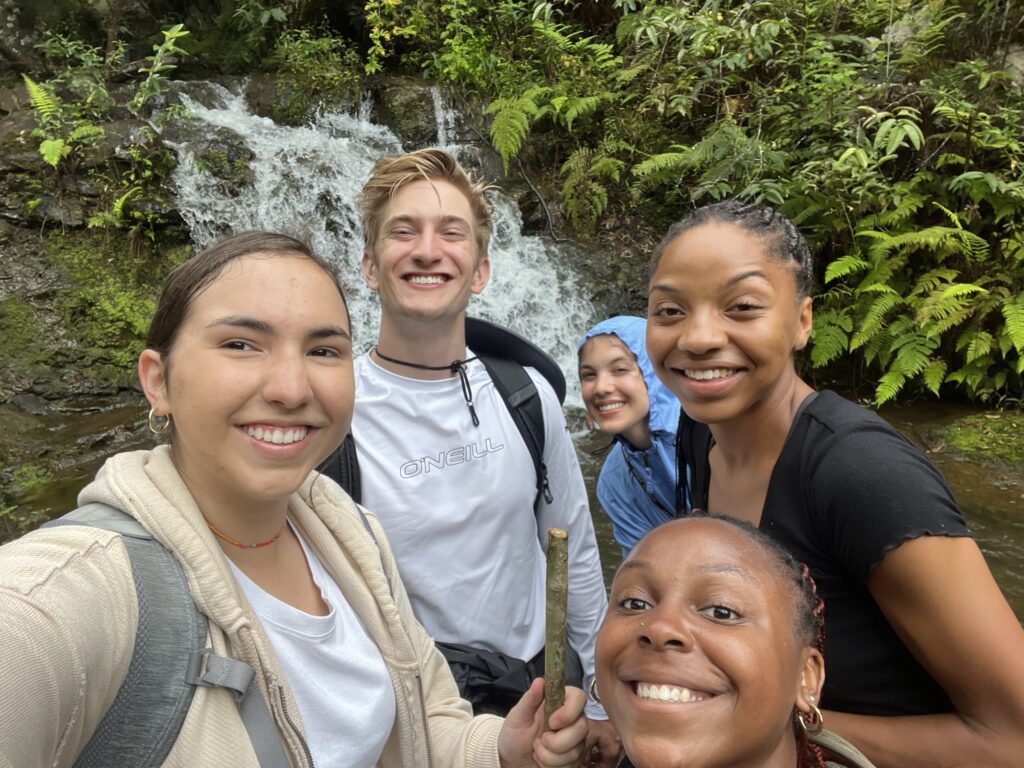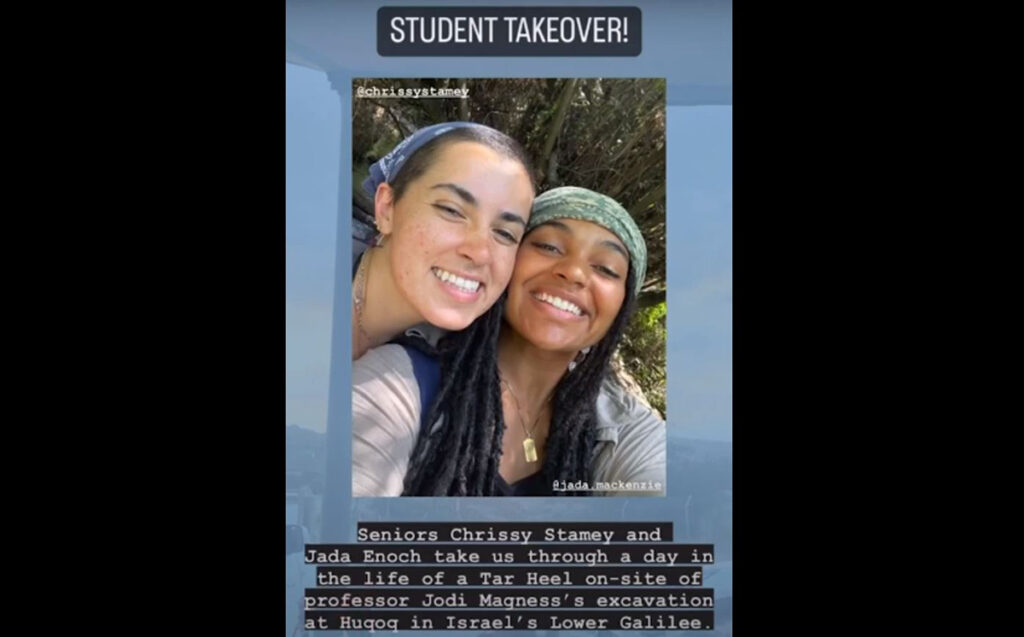Emerald Izuakor discovered Andalusian life through the eyes of Spanish poets
September 23, 2024

“I love the intimacy of poetry and how we can get such detailed, vivid snapshots of place and feeling in such a small space,” said Emerald Izuakor, who studies Hispanic linguistics and nutrition on the health and society track. (courtesy of Emerald Izuakor)
A Robinson Honors Fellowship allowed the senior to study the food and landscapes of Spain that inspired famous works of literature.
A passion for Spanish food, culture and language led senior Emerald Izuakor from Carolina to Andalusia, the southern-most region of Spain.
With the support of a Robinson Honors Fellowship through Honors Carolina, Izuakor spent seven weeks this past summer researching the agricultural and culinary traditions of the region through the lens of Arab and Sephardic poets.
Poets as her guides
The inspiration for Izuakor’s research abroad was sparked by a Spanish class she took her junior year: “Let’s Talk about Food: Cultural Identity in Spain.” Led by teaching professor Cristina Carrasco, the course explores Spanish culinary traditions and how they are shaped by geography, religion, demographics and sustainability.
“My final group project was about exploring food in Don Quixote,” said Izuakor, who is from Raleigh. “We studied how food-related passages revealed truths about daily life in Spain.”
When the class ended, she was determined to learn more. She hoped to trace the ties between literature, cuisine and life back to the eighth century during Muslim rule of the historical region of Spain known as al-Andalus.
She asked Carrasco to be her adviser and got a resounding ‘yes.’
“It has truly been amazing to get to know and work with her,” said Izuakor of her mentor.
Izuakor’s interest in poetry — ignited during her first year at UNC while reading the work of Spanish poet Federico García Lorca and his descriptions of Andalusian life and landscapes — helped narrow her research focus further.
“I essentially walked in [Spanish poets’] footsteps and used their poetry as a guidebook,” she said of her weeks researching in Spain.
Those poets led her to cities and towns across Andalusia, including Córdoba, Granada, Motril, Seville and Málaga as she made ties between literature and lived experiences.
“A typical day consisted of visiting historical and agricultural sites, marketplaces and trying different foods,” Izuakor said. She kept a notebook by her side to jot down ideas and observations “based on the connections between the Andalusian landscape and the poetry.”
Coursework connections
Izuakor has majors in Hispanic linguistics in the College of Arts and Sciences’ Romance studies department and nutrition on the health and society track through the UNC Gillings School of Global Public Health. The former helps her maintain and improve her Spanish language skills. The latter has allowed her to look at health and food through the lenses of policy and sustainability, a “never-stagnant and ever-evolving” field, she said.
Izuakor’s majors support her personal, academic and professional interests as she prepares for a career in global public health. They also informed how she will present her fellowship research observations.
“I will use my findings to create a digitized bilingual reference of Arab and Sephardic Andalusia that highlights certain sites, landmarks, foods and recipes alongside the poetry they inspire,” she said. The reference will be in both English and Spanish.
She hopes Tar Heels who read her research will be inspired not only to further explore the literature and cuisine of Spain, but also to pursue their own academic passions outside the classroom in creative ways.
“This was an interdisciplinary project centered around food but viewed from various angles of literature, nutrition, anthropology and social studies,” she said. “I’ve found that one theme or topic can be greatly enhanced in the context of another.”
As she looks forward to her global health career after graduating from UNC, Izuakor emphasizes that writing and poetry will remain integral to her life, both in and out of her profession.
“My time at Carolina has taught me that food, health, language and well-being are universal engagers and connectors,” she said, “and I want my career to reflect that.”
By Jess Abel, College of Arts and Sciences



